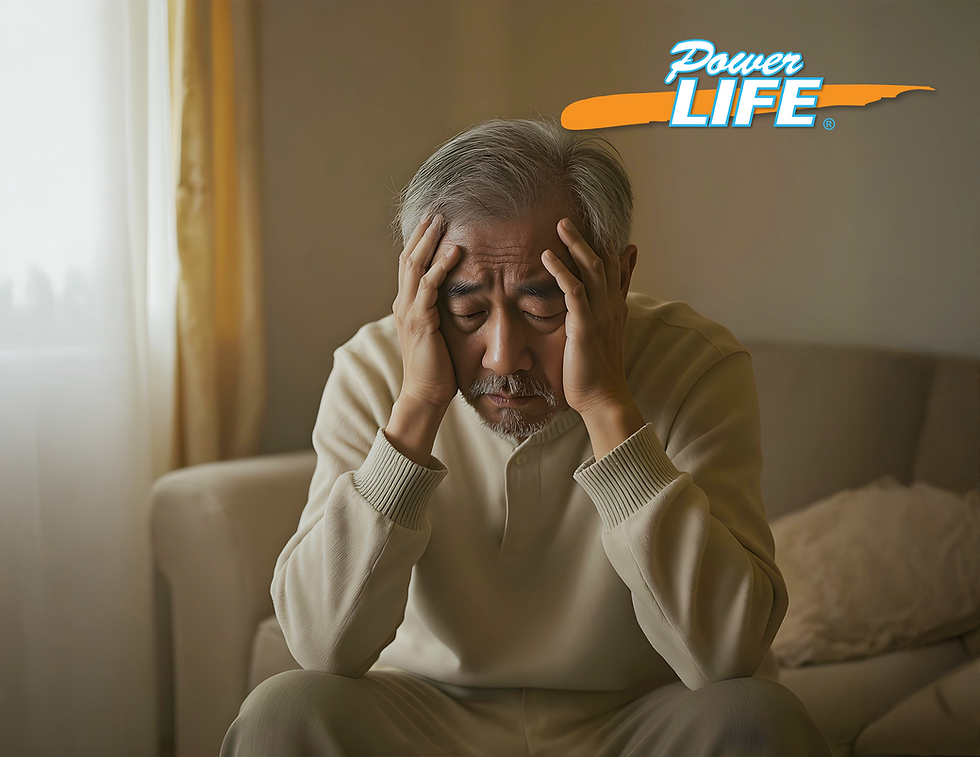Veganuary - Why supplementation shouldn’t be an afterthought
- Powerlife Care

- Jan 24, 2022
- 5 min read

Veganuary is growing year after year
More than 582,000 people from 209 countries pledged to go vegan this month of January in 2021. As more and more people trying and staying vegan this month, it is also important to understand what is all about vegan nutrition and not let supplementation an afterthought.
What is Veganuary?
Veganuary is a charity registered in England and Wales to inspire people to try Vegan for January and throughout the rest of the year. This 30-day challenge requested its participants to eat only plant-based food in January. Veganuary has gradually gained its popularity as most people is more health concern now, as well as for the environment.
Do I need to supplement if I’m on a vegan diet?
The simple answer is yes – it is something that needs to be considered. Nutritional planning and supplementation are key components of a healthy vegan lifestyle, with a few nutrients deserving special attention. Supplementation often raises conflicting opinions, and unfortunately there is a lot of misinformation out there – but reliable supplementation is an important part of a healthy vegan transition, and we shouldn’t shy away from it!
Here are the 7 nutrients that you may need to supplement with while on a vegan diet.
1. Vitamin B12
Vitamin B12 may be the most important supplement for vegans. It is crucial for maintaining many bodily processes. This vitamin plays a crucial role in the formation of red blood cells, helps metabolize proteins, as well as supports a healthy nervous system. Too little vitamin B12 can lead to anemia and nervous system damage, as well as infertility and bone and heart disease.
Although anyone can have low vitamin B12 levels, vegans typically have a higher risk of deficiency as they are limited vegan sources of this vitamin. Some believe vegans who eat enough of the right plant foods don’t need to worry about vitamin B12 deficiency. However, there is no scientific basis for this belief. Furthermore, there’s still debate on whether plant foods that contain vitamin B12 naturally is active in humans.
The ability to absorb Vitamin B12 decreases with age. Thus, the institute of medicine has recommended for those that is over 51 years old, vegan or not, to consider taking vitamin B12 supplement.
2. Vitamin D
Vitamin D is a fat-soluble vitamin that helps enhance the absorption of calcium and phosphorus from your gut. Besides that, Vitamin D also influences other bodily processes, including function, mood, memory and muscle recovery.
Very few foods naturally contain Vitamin D and thus there’s a worldwide reports of Vitamin D deficiency among vegans and omnivores.
Apart from food that you get from your diet, Vitamin D can be made from sun exposure too. Just spend about 15 minutes in the midday sun, most people like can make enough vitamin D. However, because of the known negative effects of excess UV radiation, many dermatologists warn against using sun exposure to boost vitamin D levels.
Thus, the best way for vegans to ensure they are getting enough vitamin D is to have their blood levels tested and consider taking a daily vitamin D3 supplement.
3. Omega-3s
Omega-3 fatty acids can be categorized into two categories:
Essential Omega-3 fatty acids: Alpha-linolenic acid (ALA) is the only essential omega -3 fatty acid which one can get it from the diet
Long-chain omega-3 fatty acids: This includes eicosapentaenoic acid (EPA) and docosahexaenoic acid (DHA)
Plants with high ALA content include flax seeds, chia seeds, walnuts, hemp seeds, and soybeans. Whilst EPA and DHA are mostly found in animal products like fatty fish and fish oil. Getting enough ALA should threotically maintain adequate EPA and DHA levels, however, the conversion of ALA to EPA can be as low as 5 – 10%, while its conversion to DHA may be near 2-5%.
Research studies have shown that vegetarian and vegans have 50% lower blood and tissue concentrations of EPA and DHA than omnivores. Vegans can obtain sufficient amount by supplementing with algae oil.
4. Iron
Iron is essential mineral to make new DNA and red blood cells, as well as carry oxygen in the blood and required for energy metabolism.
Too little iron can lead to anemia and symptoms like fatigue and decreased immune function.
Iron can be found in two forms: heme and non-heme. Heme iron is only available from animal products, whereas non-heme iron is found in plants. Heme iron is more easily absorbed from the diet than non-heme iron, thus vegans are often recommended to have 1.8 times more than the normal RDA.
Vegans with low iron intake should aim to eat more iron-rich food such as cruciferous vegetables, beans, peas, dried fruit, nuts and seeds. Avoiding tea or coffee with meals, or combining iron-rich foods with a source of vitamin C, also help in boosting iron absorption.
Wondering if supplements are necessary? You can get your hemoglobin and ferritin levels checked by your health practitioner.
5. Calcium
Calcium is a mineral that is essential for good bone and teeth health. It also plays a role in muscle function, nerve signalling and heart health.
Plant sources of calcium include bok choy, kale, mustard greens, tofu, broccoli or chick peas.
Most studies have found out that most vegans do not get enough calcium. And evidence suggests that vegans consuming less than 525 mg of calcium tend to have an increased risk of bone fractures. Thus, supplements should be used if this can’t be achieved through diet.
6. Zinc
Zinc is another mineral that plays a role in metabolism, immune function and repair of body cells. Insufficient intake of zinc can lead to developmental problems, hair loss, diarrhea and delayed wound healing. Few plant foods contain high amount of zinc, but the absorption from some plant food is limited due to their phytate content. Thus, vegetarians are advised to aim for 1.5 times more than the RDA.
To maximize the intake of zinc, do consume a variety of zinc-rich food throughout the day, like whole grains, wheat germ, tofu, sprouted breads, legumes, nuts and seeds. Or Vegans concerned about zinc intake or those with symptoms of deficiency may consider to take zinc supplement.
7. Iodine
Getting enough iodine is crucial for healthy thyroid function, which controls your metabolism. Insufficient iodine intake can lead to hypothyroidism which can cause various symptoms, such as low energy levels, dry skin, forgetfulness, depression and weight gain.
Studies have reported that vegans have up to 50% lower blood iodine levels than vegetarians. Iodine levels in plant foods depend on iodine content of the soil in which they were grown. For example, food grown close to ocean tends to be higher in iodine.
Vegans who do not want to consume iodized salt or seaweed can consider taking an iodine supplement.
As a take home message, well-planned vegan diets can fulfil your nutritional needs. However, certain nutrient requirements may be difficult to achieve through diet and should consider taking supplements.
References:
Burdge GC, Tan SY, Henry CJ. Long-chain n-3 PUFA in vegetarian women: a metabolic perspective. J Nutr Sci. 2017 Nov 23;6:e58. doi: 10.1017/jns.2017.62. PMID: 29209497; PMCID: PMC5705809.
Saunders AV, Davis BC, Garg ML. Omega-3 polyunsaturated fatty acids and vegetarian diets. Med J Aust. 2013 Aug 19;199(S4):S22-6. doi: 10.5694/mja11.11507. PMID: 25369925.
Leung AM, Lamar A, He X, Braverman LE, Pearce EN. Iodine status and thyroid function of Boston-area vegetarians and vegans. J Clin Endocrinol Metab. 2011 Aug;96(8):E1303-7. doi: 10.1210/jc.2011-0256. Epub 2011 May 25. PMID: 21613354; PMCID: PMC3206519.
Pawlak R, Lester SE, Babatunde T. The prevalence of cobalamin deficiency among vegetarians assessed by serum vitamin B12: a review of literature. Eur J Clin Nutr. 2014 May;68(5):541-8. doi: 10.1038/ejcn.2014.46. Epub 2014 Mar 26. Erratum in: Eur J Clin Nutr. 2016 Jul;70(7):866. PMID: 24667752.
Reynolds E. Vitamin B12, folic acid, and the nervous system. Lancet Neurol. 2006 Nov;5(11):949-60. doi: 10.1016/S1474-4422(06)70598-1. PMID: 17052662.
Appleby P, Roddam A, Allen N, Key T. Comparative fracture risk in vegetarians and nonvegetarians in EPIC-Oxford. Eur J Clin Nutr. 2007 Dec;61(12):1400-6. doi: 10.1038/sj.ejcn.1602659. Epub 2007 Feb 7. PMID: 17299475.




Comments